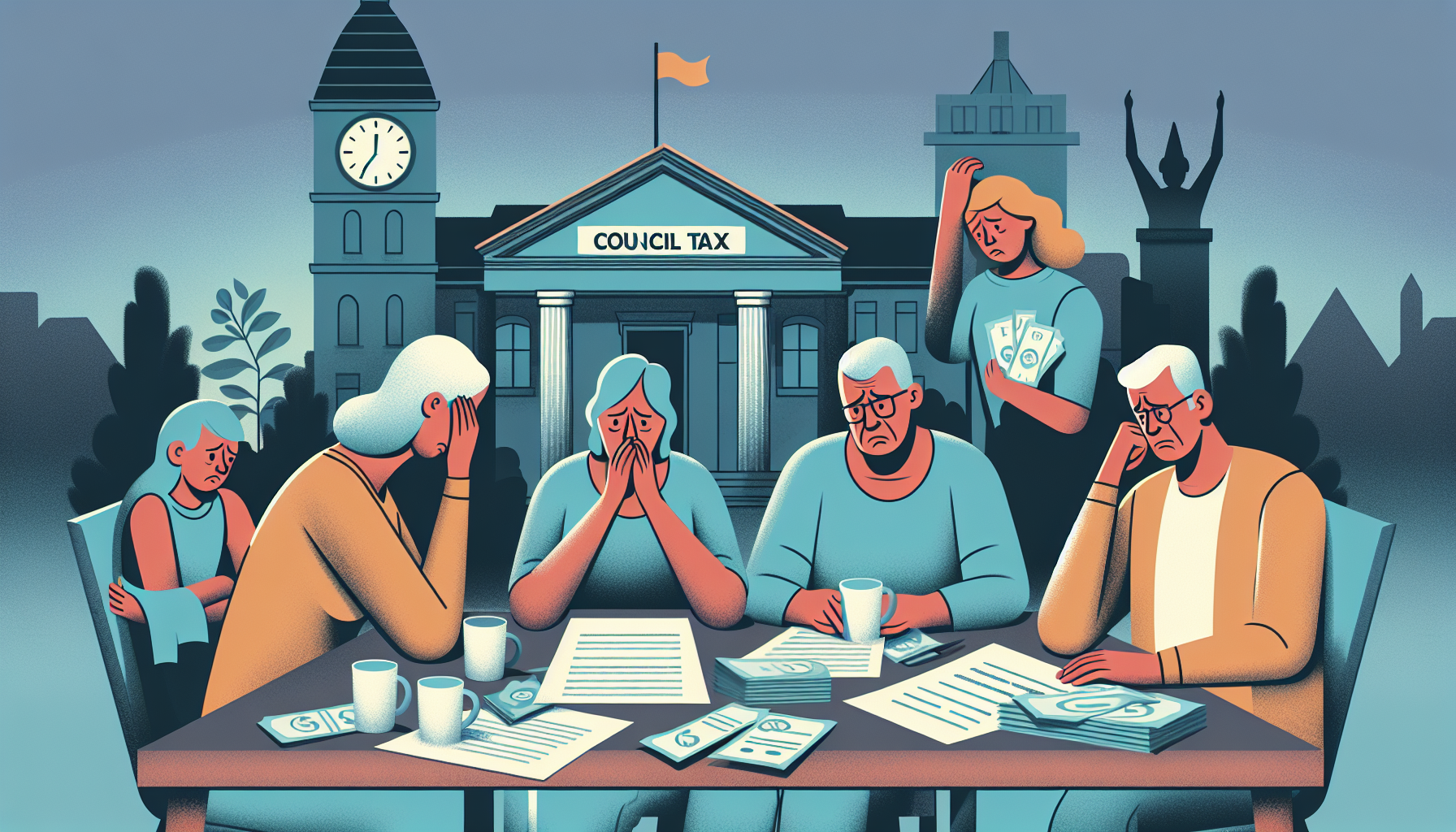Title: The Weight of Debt: Understanding the Impact of Council Tax Arrears on Society
Dear readers,
Imagine sitting at your kitchen table, your favorite ceramic mug filled with lukewarm tea, your heart heavy as you sift through bills. Amidst them lies a council tax demand—not just a piece of paper, but a stark reminder of financial troubles. Now, amplify this scene across millions of households. Welcome to one of the United Kingdom's pressing financial dilemmas: council tax arrears.
In a recent revelation, it's been brought to light that households across England, Scotland, and Wales collectively owe a staggering £8 billion in unpaid council tax. This isn't just an echo of the cost-of-living crisis; it’s a mirror reflecting deeper systemic challenges gripping our communities.
Let's explore what these figures reveal about our society and what they mean for me, you, and everyone trying to make ends meet.
A Debt Ripple That Can't Be Ignored
Earlier this year, figures disclosed that £6.6 billion in council tax remains uncollected in England alone, with an additional £642 million debt accrued in just one year. Combine these with Scotland's £1.5 billion and Wales' £263 million, and the enormity of this financial burden becomes strikingly clear.
But numbers alone don't tell the whole story. Imagine Toby Murray from Debt Justice, emphasizing that council tax arrears predominantly affect those already on the precipice of financial despair. For families living paycheck-to-paycheck, even three late payments can lead to demands for the entire year's amount. If unmet, it triggers the terrifying possibility of bailiffs at the door.
These situations underscore a crucial point: the very mechanisms we use to enforce financial responsibility may sometimes exacerbate the problems we aim to resolve.
Challenging the Status Quo: Towards Compassionate Solutions
There's a quiet but significant call for reform. Campaigners argue for a sympathetic approach to recovering debts, one that understands the plight of those genuinely struggling. They suggest that rather than employing bailiffs, a focus on understanding, support, and rehabilitative measures should prevail.
The government's recent initiatives show promise. Plans to cap debt-related fees and a proposal to shift to a default of 12 monthly payments instead of 10 signal an awareness of citizens' financial pressures. However, as Darren Jones, the Chief Secretary, hinted, council taxes might still rise by up to 5% annually unless capped by local referendum or government approval—a potential double-edged sword for cash-strapped households.
Finding Stability Amidst Financial Uncertainty
In this maze of debts and dues, what can families do? Organizations like Citizens Advice offer a lifeline—encouraging open communication with councils, exploring discounts for low-income earners, and advising on programs like the Breathing Space scheme, which offers a temporary reprieve from financial strain.
Yet, the conversation doesn't end here. Local governments face their own financial constraints, tasked with balancing fiscal responsibility with empathetic public service. The Local Government Association acknowledges this delicate dance, urging for sufficient governmental support to aid those in need without universally hiking council tax rates.
The Road Ahead: Learning from a Collective Experience
As I write this, I'm reminded of the importance of solidarity. Yes, council tax arrears are numerically significant, but they're also human stories—of resilience, of communities banding together, and of a collective push towards reform.
What remains crucial is how we, as a society, choose to navigate this challenging terrain. It's not simply about addressing an arrear figure; it's about reshaping our understanding of responsibility—not punishing vulnerability, but fostering resilience.
As we ponder these issues, let's aim to be part of a narrative that doesn't just react to financial challenges but actively seeks humane, sustainable solutions for all. It’s time to redefine how we interact with our financial obligations, not as shackles, but as shared responsibilities with shared support.
Until next time—seek compassion in policy and practice.
Yours in reflection,
A Keeper of Coins & Compassion

